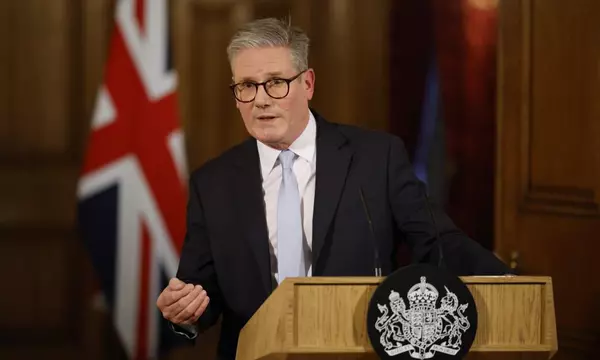Environmental organisations “are still very white, especially at the top”, the co-director of Greenpeace has said as research showed little to no improvement in the ethnic diversity of their workforces.
Areeba Hamid’s comments came as the third annual racial action on the climate emergency (Race) report into diversity among environmental charities found fewer than one in 20 of those working in the sector identified as people of colour or as other racial or ethnic minority groups.
The average among the UK workforce is 16%, or just more than one in eight.
“Environmental organisations are still very white, especially at the top,” Hamid said. “I find myself in CEO meetings where I’m the only person of colour in the room, and it just doesn’t feel right in 21st-century Britain. Since measuring a problem is the first step towards solving it, it’s good to see more and more organisations publishing data about their staff’s ethnic diversity. But, as a sector, we now need to move swiftly from talking about the issue to actually doing something about it.”
The lack of improvement comes despite environment institutions’ apparent efforts and willingness to engage. Researchers said 161 – the highest number yet – had provided data, including all the UK’s largest environment NGOs.
Read also: Fire chiefs warn UK is not prepared for climate crisis impacts
Together they represented 28,600 employees, more than double the number of workers accounted for in the previous year’s report, giving researchers the best picture yet of racial diversity in the sector.
Overall, the headline figure of 4.5% of workers hailing from ethnic minority groups was lower than the 6% recorded in 2023, but researchers said the far larger sample size meant the two figures were not statistically comparable.
Indeed, that figure was, it seems, pulled down by the inclusion of more large organisations, which were found to have lower racial diversity than smaller ones. Strikingly, just 1.8% of workers in organisations with 500 to 1,000 staff identified as being from an ethnic minority, compared with an average of 14.1% in organisations with 10 to 49 workers.
Manu Maunganidze, part of the team that published the report, said: “The more we uncover, the more we realise there’s still much work to do – but that’s not a setback, as long as we stay committed and grounded in why racial diversity matters in the first place.
“People of colour may be minoritised in the UK but, globally, they’re on the frontlines of climate change. Those most affected by environmental disasters – floods, wildfires, rising tides – are too often those who aren’t given a seat at the table. This is why representation is so critical.”
Story was adapted from the Guardian.
